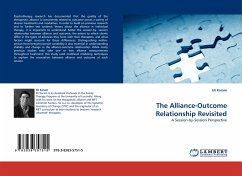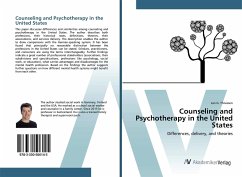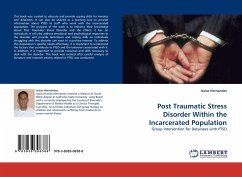
The Alliance-Outcome Relationship Revisited
A Session-by-Session Perspective
Versandkostenfrei!
Versandfertig in 6-10 Tagen
32,99 €
inkl. MwSt.

PAYBACK Punkte
16 °P sammeln!
Psychotherapy research has documented that the quality of the therapeutic alliance is consistently related to outcome across a variety of diverse treatments and modalities. In order to build on previous research and to further test systemic theory about the alliance in individual therapy, it is important to understand better the session-by- session relationship between alliance and outcome, the extent to which clients differ in the types of alliances they form with their therapists, and what factors might account for these differences. Distinguishing within-person from between-person variabili...
Psychotherapy research has documented that the quality of the therapeutic alliance is consistently related to outcome across a variety of diverse treatments and modalities. In order to build on previous research and to further test systemic theory about the alliance in individual therapy, it is important to understand better the session-by- session relationship between alliance and outcome, the extent to which clients differ in the types of alliances they form with their therapists, and what factors might account for these differences. Distinguishing within-person from between-person variability is also essential in understanding stability and change in the alliance-outcome relationship. While many previous studies only take one or two alliance measurements throughout treatment, this study used multilevel modeling techniques to explore the association between alliance and outcome at each session.












